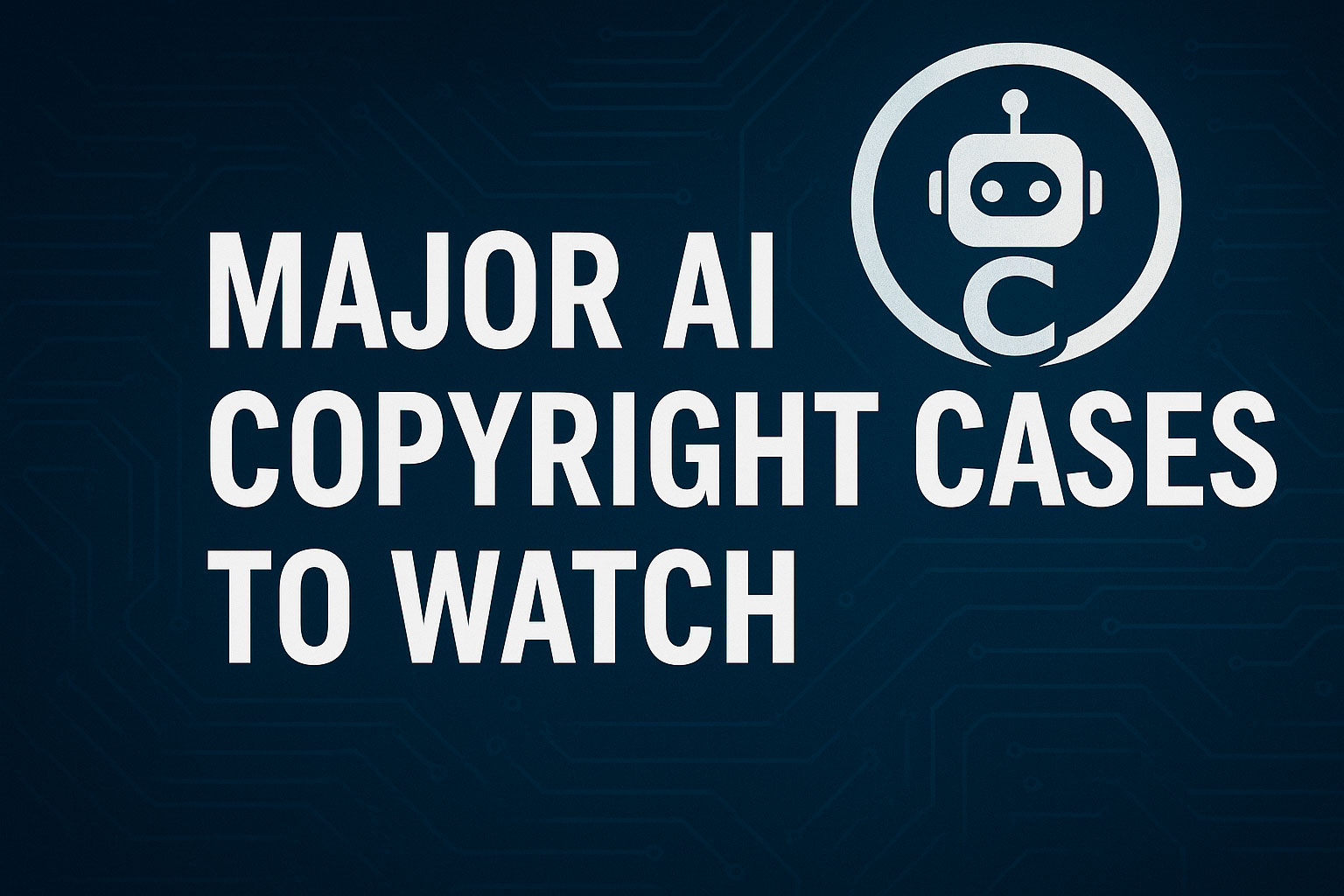Major AI Copyright Cases to Watch in 2025 | What Artists Need to Know
🗓️ Published: August 6, 2025

Introduction
As artificial intelligence continues reshaping the creative industry, the courts are becoming the new battleground for what counts as ownership, originality, and fair use.
In 2025, several major AI copyright cases are unfolding—and the outcomes could reshape how artists, AI companies, and platforms like CertifyRights operate.
In this post, we’ll highlight the top AI copyright lawsuits happening right now, explain why they matter, and show what creators can do to protect their work in a rapidly evolving legal landscape.
Why These Cases Matter to Artists
- They define who owns AI-generated content
- They clarify whether training AI on copyrighted work is legal
- They influence how platforms handle artist rights, scraping, and licensing
- They impact your ability to defend your style, likeness, and data
If you're a digital artist, photographer, designer, or AI-assisted creator—these lawsuits directly affect your future.
The Most Important AI Copyright Cases to Watch in 2025
1. Andersen v. Stability AI (Ongoing)
Filed by: Sarah Andersen and other artists
Against: Stability AI (creator of Stable Diffusion), MidJourney, DeviantArt
Core Issue:
AI models were trained on billions of online images—including copyrighted artwork—without artists' permission.
Why It Matters:
If courts side with the artists, AI companies may be forced to license training data or compensate creators retroactively.
CertifyRights Tip:
Use CertifyRights to timestamp your art now in case you need to prove it was scraped without consent.
2. Getty Images v. Stability AI (UK & US)
Filed by: Getty Images
Against: Stability AI
Core Issue:
Stability AI allegedly used millions of Getty photos to train its models, violating licensing terms.
Why It Matters:
If Getty wins, it sets a precedent: training data must be licensed or cleared. It could shift the economics of AI art tools entirely.
3. New York Times v. OpenAI & Microsoft (2024–2025)
Filed by: The New York Times
Against: OpenAI & Microsoft
Core Issue:
The Times alleges its articles were used to train ChatGPT without permission, and the model can now reproduce their content.
Why It Matters:
This case isn't just about journalism—it’s about who owns training data and AI output. A decision here could spill into visual and creative arts.
4. Artists v. AI Art Clones on Etsy & Redbubble
Filed by: Independent artists (ongoing DMCA battles)
Against: Sellers posting AI-generated knockoffs
Core Issue:
AI art that closely mimics real artists' style is being sold without consent on marketplaces.
Why It Matters:
If sellers or platforms are held liable, it could change how AI-generated art is labeled, sold, or restricted.
5. U.S. Copyright Office Reports on AI (2025)
While not a single case, the Copyright Office’s third major report on generative AI is expected to influence future laws. It addresses:
- Human authorship requirement
- Ownership of AI-assisted vs AI-generated work
- Dataset transparency and training disclosures
What Artists Can Do Now
While courts decide, here’s how you can protect your creative work today:
Certify Your Art Immediately
Get a timestamped certificate of ownership with CertifyRights. This creates an independent record of when your art was made—essential if it's ever scraped or copied.
Add Clear Licensing Language
Post your work with notices like:
“Not authorized for AI training or dataset inclusion.”
Use Anti-Scraping Tools
Tools like Glaze and Nightshade help distort your art’s presence in AI training.
Track Where Your Art Appears
Use reverse image search, Google alerts, and AI detection tools to monitor misuse of your work.
Frequently Asked Questions
Q: Will these lawsuits stop AI from using my art?
Not instantly. But they could force AI companies to pay artists, license content, or offer opt-outs in the future.
Q: Does CertifyRights protect me legally?
It provides strong, timestamped proof of authorship, which is essential in disputes, DMCA takedowns, or evidence for claims.
Q: What happens if AI mimics my style?
Current laws don't fully protect “style,” but CertifyRights can prove your originality, which may help under unfair competition or false representation claims.
Final Thoughts
2025 is a turning point. These lawsuits will shape the future of creativity, ownership, and artificial intelligence.
As courts determine the fate of artist rights, take control of what you can: protect your work, prove it’s yours, and prepare for what’s next.
Defend Your Creative Rights Today
Upload your artwork to CertifyRights.com and secure a digital certificate of originality—before your art becomes someone else's training data.
